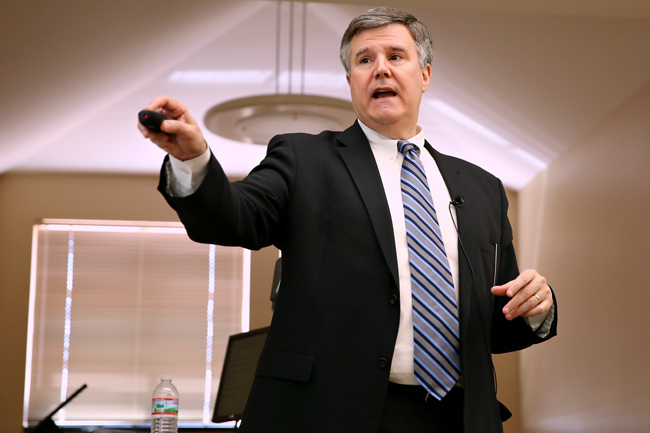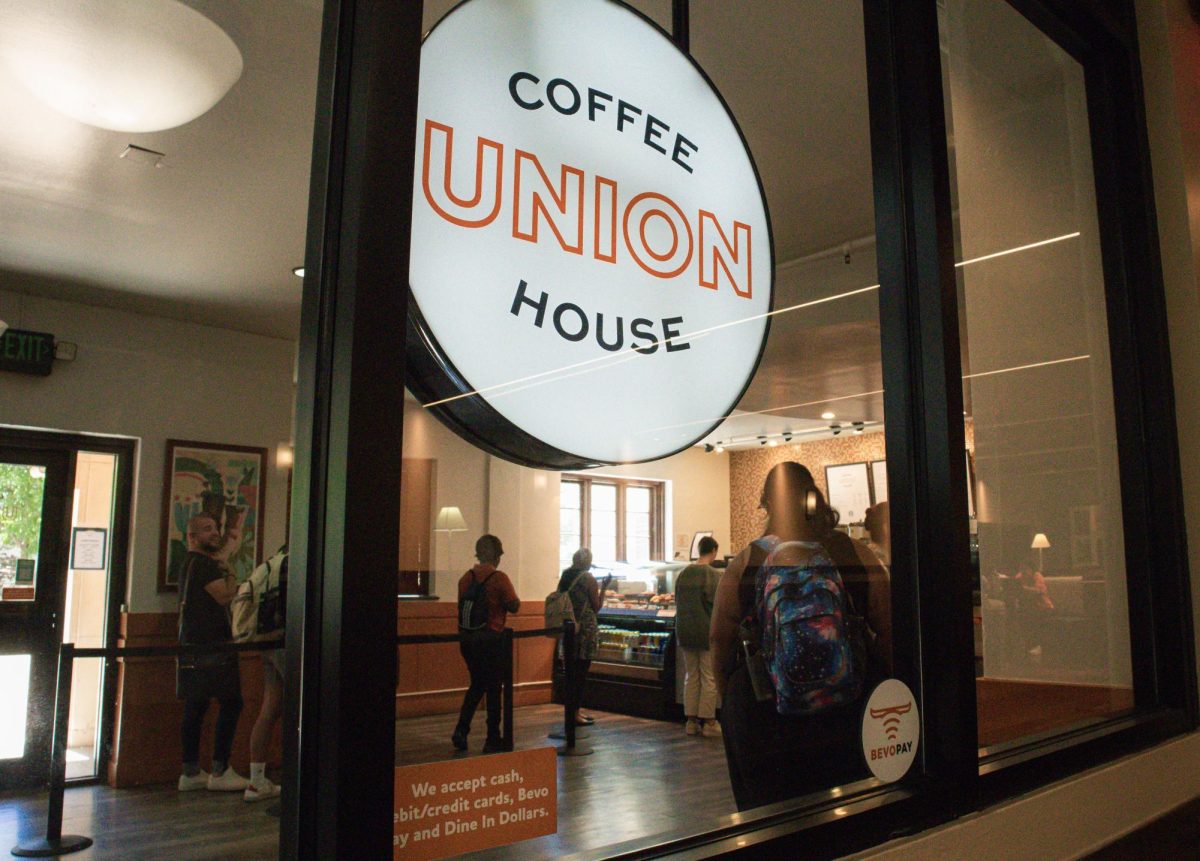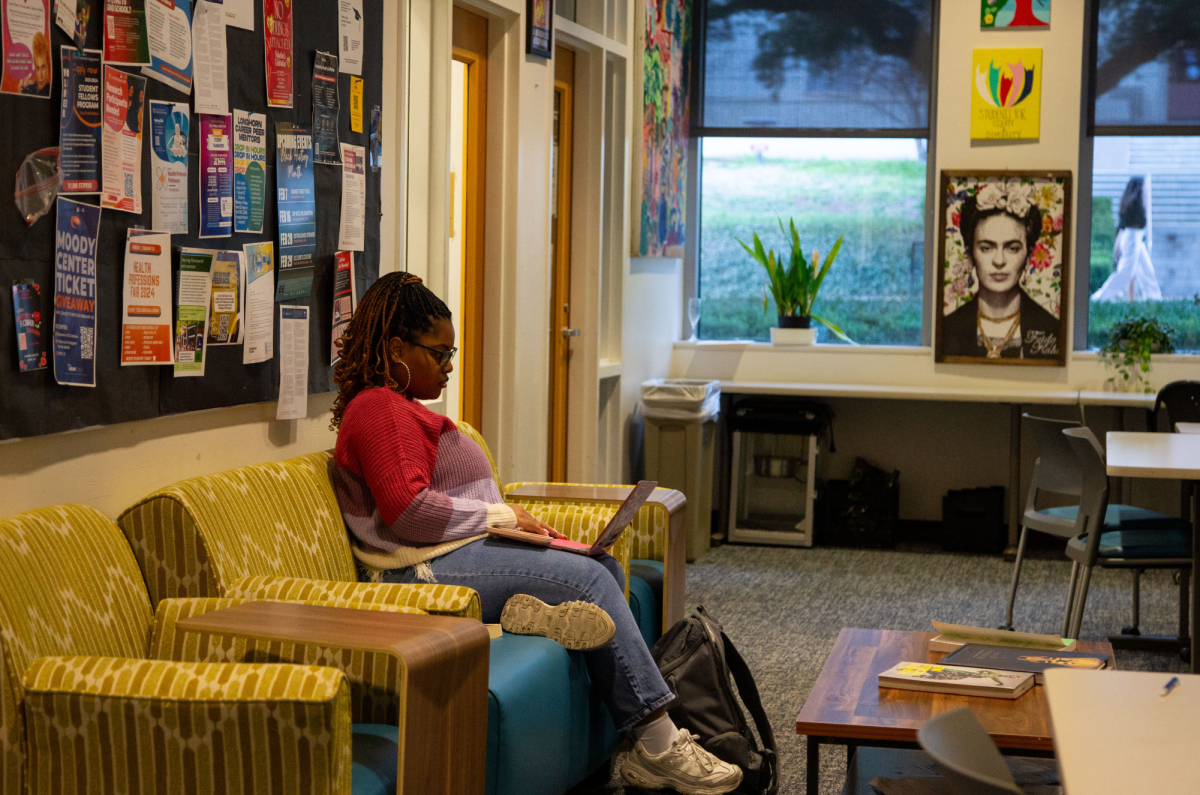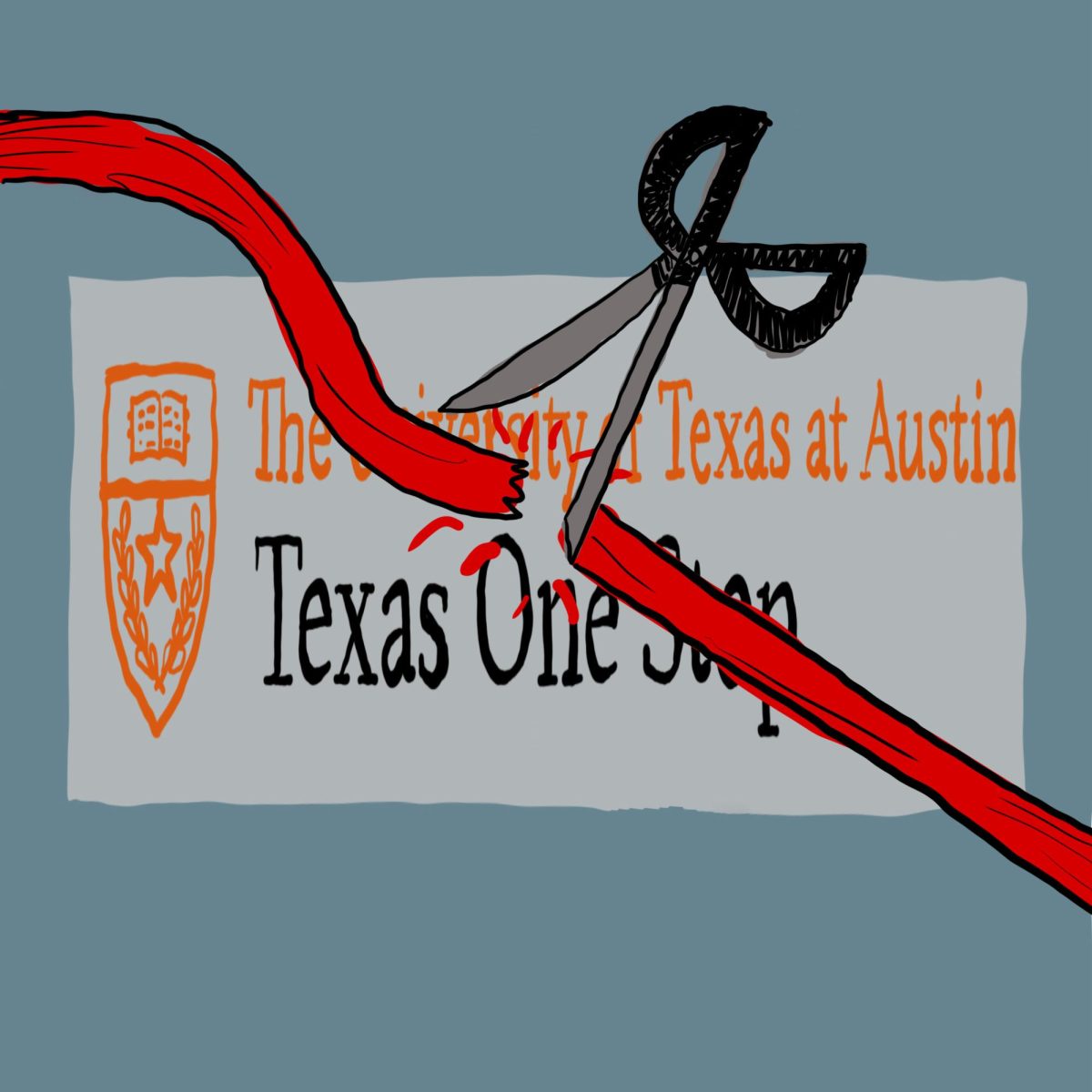In a lecture titled “The New Middle East Cold War,” Gregory Gause, political science professor at the University of Vermont and a senior fellow at the Brookings Institution, said many people have a flawed understanding of conflict in the Middle East.
“The regional upheavals that the Middle East has seen since 2011, and particularly the international relations aspects of it, have been misunderstood,” Gause said.
Gause thinks the conflict should be labeled as a “cold war” because the nature of the conflict is not focused around any country’s military but, rather, revolves around each country’s influence on the region.
“It’s a cold war in that your military power is not the centrally important factor in determining who’s going to win and who’s going to lose,” Gause said.
Gause believes it is not a religious conflict, as many see it, but a result of many Arab countries struggling to take care of themselves and requiring help from their neighbors. According to Gause, two of the largest powers who are fighting for control of the region are Iran and Saudi Arabia.
“This is a conflict, I would argue, that is based on the breakdown of state authority that invites regional intervention,” Gause said.
Humanities junior Lucas Asher said he attended the lecture because he wants to take as many opportunities to learn about the topic as he can, despite this goal not fitting his career path.
“There’s a lot of disagreement among scholars and analysts,” Asher said. “The Middle East is such a complex region [that] you need to hear as many views as possible.”
Katie Aslan, undergraduate coordinator of Middle Eastern studies, said there are approximately 140 Middle Eastern studies majors on campus, in addition to hundreds more enrolled in Arabic and Persian language classes. Aslan said lectures such as this one are important because they offer a different kind of setting for students to learn in.
“It’s more interactive, and you can ask questions and feel more comfortable asking questions,” Aslan said. “It’s a nice change from a classroom environment.”
Gause said the United States is inconsistent in its foreign policy and should focus on building states that can function independently.
“We are much better at state-destroying than state-building,” Gause said. “I don’t think the United States has much to offer as far as the long term issue that underlies the new Middle East cold war.”





















